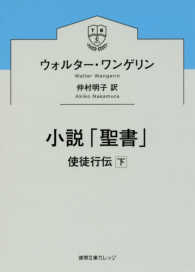Full Description
In the first part of this book, I summarize the development of the standard account of counterfactuals, i.e. conditionals of the form 'If A had been the case, then B would have been the case'. In the standard account, a counterfactual is true if the then-sentence is true in all closest worlds in which the if-sentence is true. Closeness is spelled out by an ordering of worlds and by their similarities. In the second part of this book instead, I discuss challenges to the standard account: Firstly, I defend the standard logics for counterfactuals. Secondly, I discuss exemplary doubts whether conditionals have truth conditions. Thirdly I inquire into the interaction between truth and probability of counterfactuals. Then I discuss problems with the similarity ordering and with the interaction between counterfactuals and normalcy conditions. Finally, I close with elaborating peculiarities of future-directed counterfactuals.
Contents
Contents
Introduction: Counterfactual Conditionals in the Philosophy of Language
1. The Basics
1.1. Goodman and the Problem of Cotenability
1.2. Minimal Difference/Divergence/Departure: The Stalnaker-Lewis Semantics
1.2.1. Stalnaker
1.2.2. Sobel and Similarity: Lewis
1.2.3. Orthodoxy à la Kratzer
2. Challenges to Orthodoxy
2.1. Logics
2.2. Challenging Truth-Conditions: Gibbard Cases
2.3. Probabilities
2.3.1. Proposals in the Literature
2.3.1.1. Schulz's Arbitrariness Account
2.3.1.2. Barnett's Suppositional Account
2.3.2. A New Proposal: Non-Maximality
2.4 Problems with Similarity
2.4.1. Morgenbesser Case
2.4.2. World Convergence Made Easy: The Future Similarity Objection
2.4.2.1 Elga Worlds
2.4.2.2 Bennett Worlds
2.5. Typicality
2.6. Will and Were
3. Conclusion
Literature






